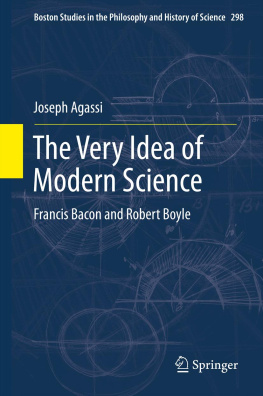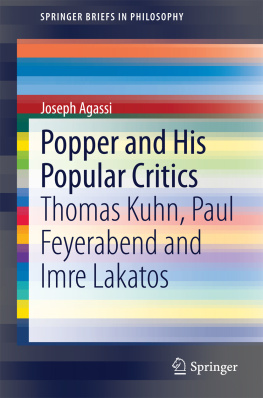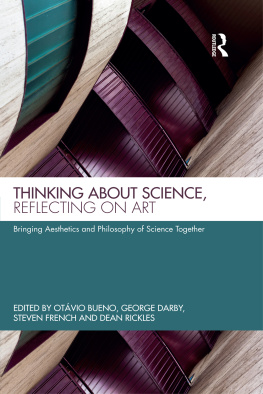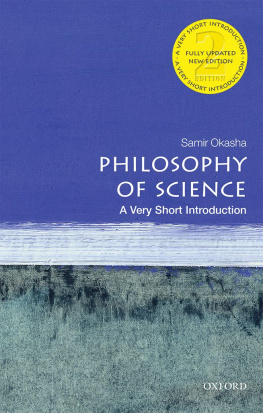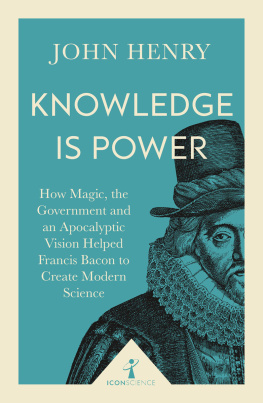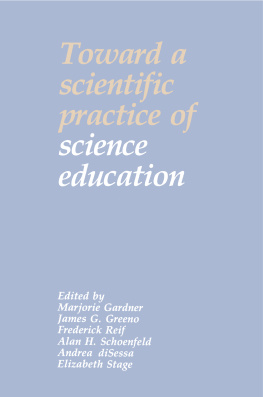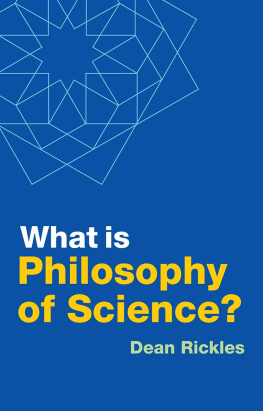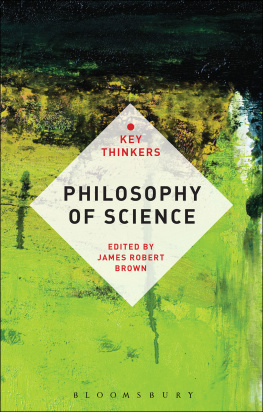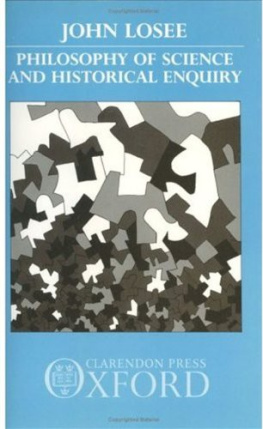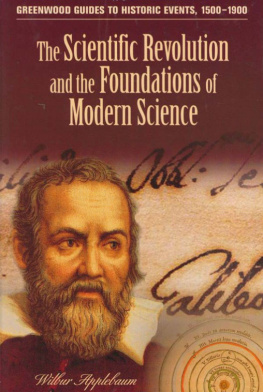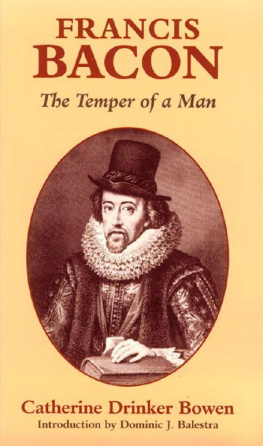From 1661 to 1831 the majority of the European thinkers and practically all those who were interested in natural science considered Bacon the father of the experimental method. It was common knowledge that experimentation is as old as humanity. What then was his contribution to it? They considered him the profoundest thinker of all ages except for Newton (Rees , 379). Why? Bacons high reputation declined: ever more critics considered him a mystic and an obscurantist (he believed in magic). Today most historians of thought hardly appreciate him and none view him as nearly as important as he was once reputed to be. Some of them seek a balanced view by ascribing to him some familiar ideas, usually ones that he expressed contempt for (as will be described later on). How did it happen that one and the same writer was once at the height of philosophical esteem and then for a short while a target of rather harsh ridicule and then entirely forgotten?
Parenthetically, let me confess, this problem has engaged me because of my peculiar appreciation of Bacon. He was as sloppy a writer as one can find, yet as brilliant and engaging nonetheless. I therefore judge reasonable both extreme opinions of him. Yet this observation is parenthetic: it seems to me that the riddle of Bacon is engaging no matter how we view him: why are opinions about him so diverse? Hardly any commentator on him has noted this great diversity of opinions about him. Why? This problem is derivative, however, and so it is less intriguing: commentators signify little in comparison with the whole commonwealth of learning.
1.1 The Problem of Methodology
It is no news that the blind read by feeling and that some chemists identify some substances by smelling. Science even helps us distinguish colors that we humans can never see and sounds that we can never hear. Swift, who mocked at the apprentices of the blind professor in the Academy of his fictitious Lagado, was poking fun at their metaphorical blindness to the fact that they were looking for the obvious in devious ways; that they preferred the blind professors dubious method to the simple ordinary one. He felt that though the truth may hide at times, we should not pretend that it is always beyond reach, or that the obvious is in need of being discovered. As he put it in his terrific Tritical Essay,
although truth may be difficult to find, because, as the Philosophers observe, She dwells in the Bottom of a Well; yet we need not, like blind Men, grope in the open Day-light.
The blind professor works in the experimental department of the Academy in Lagado which Lemuel Gulliver visits (during his voyage to Laputa) where the whole Fraternity gropes in the dark as if they were blind. They are what Bacon called Empirics. For, Bacon, like Swift, scorned the pure experimentalists who work without ever intending to achieve theoretical knowledge. As Swift showed, they tried out any new experiment that they could imagine. For, there is one kind of natural history that is made for its own sake, and quite another kind that is the gathering of information in order for it to construct a new philosophy.
The theoretical department of Lagado s Academy works upon a similar principle. Its members, led by another Professor, consider with equal seriousness any theory whatsoever, especially theories written down at random by a roulette of words. (The words, we are also told, belong to a universal language.) The Professor is what Bacon called Reasoner or Rationalist. He takes seriously any idea whatsoever, no matter how obviously false it may be; he is imbued with ideas but blind to facts. The Reasoner is one who fell to obvious errors because he did not consult experiment, as he should have done ( Novum Organum , 1, Aph. 63). Both the Empiric and the Reasoner are on the wrong track. As we all know, science is the offspring of what Bacon called the marriage between the intellect and the world, namely, the offspring of the world of experience that comprises a mix of Reason and Perception.
The question that Bacon, as every other methodologist, has tried to answer, is not whether there exists such a marriage, or whether it is at all fruitful. Even philosophers who deemed all knowledge a priori valid never dreamt of denying importance to the contribution of observation and experiment to the growth of science and the great value of observations. The question then is, how do theory and experience cooperate? How do reason and perception cooperate? This is the fundamental problem of scientific method. Opinions concerning it diverge, but one thing is clear: researchers have only to hear that a certain theory of scientific method is that of an Empiric or that of a Reasoner, and they will reject it.
Swift did not say how reasoning and experience do or should cooperate, as he did not pretend to be a methodologist. His report on the methodology popular at his time is exaggerated as befitting a satire. This satire brought an interesting comment from Ernst Mach, a leading methodologist of two centuries later (Mach , 55):
I do not know whether Swifts academy in which great discoveries and inventions were made by a sort of verbal game of dice, was intended as a satire on Francis Bacons method of making discoveries by means of huge synoptic tables constructed by scribes. It certainly would not have been ill placed.
This is an interesting illustration of the confusion that surrounded the question, what is the proper cooperation between reasoning and experiment? For, as it happens, Machs theory of discovery is the same as Bacons. the theory they both condemned is that new theories inspire new experiments that lead to discovery; the theory they both advocated is that discovery comes to open-eyed and unprejudiced observers and it should lead to new theories. They both said, properly experience leads to theory whereas the other way around is improper.

